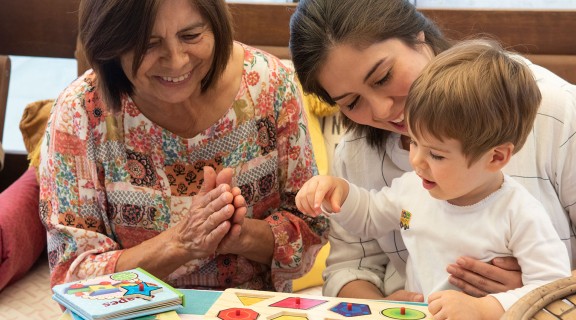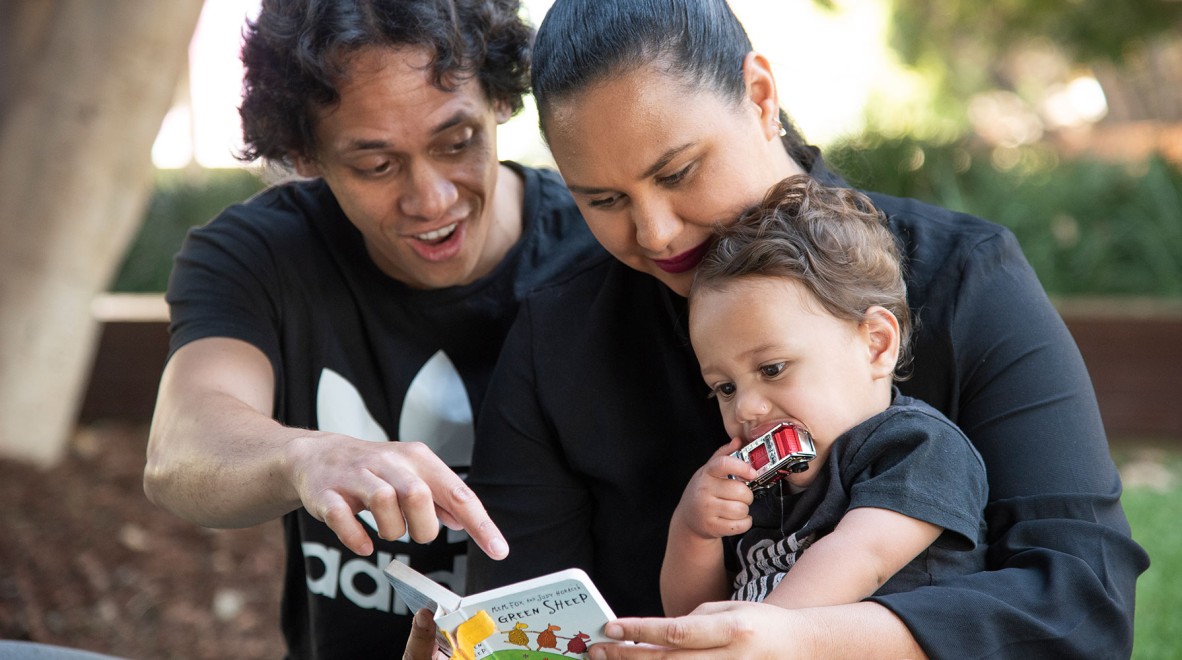
Why are the first five years so important?
13 January 2020 | State Library of Queensland
Did you know?
More than a million new connections are forming in your child's brain every second during their first few years of life.
Research tells us that when babies and children get what they need it can have a lasting effect on their future.
Sharing stories, singing, talking and playing with your child from birth builds a foundation for your child’s future development that can last a lifetime.

Family reading 'Where Is the Green Sheep?' by Mem Fox.
Parents and caregivers play a valuable role
Babies and young children learn best by listening and interacting with the important adults in their lives during everyday activities – whether that’s talking about what you can see on the way to the park, singing nursery rhymes, pointing out something you both view out the window, or learning new words while shopping for groceries.
That’s why First 5 Forever connects parents and caregivers to a range of resources and ideas, and connects you to your local library for more ideas and information you can use anywhere, any time.
At free Baby time, Rhyme time and Story time sessions at your local library you can also meet other families and have fun finding old and new favourite rhymes and stories that you can share with your child at home.
What the research tells us
- Children are born ready to learn and some of the best learning comes from nurturing relationships¹.
- During the first few years after birth, more than 1 million new synapses (connections between neurons) form every second. Early experiences affect the nature and quality of the brain’s developing architecture².
- Shared activities at home and out and about in the early years are important in the development of language skills later on, and research highlights the significant role that parents play in helping their babies build a strong foundation for future learning³.
Subscribe for more tips
Subscribe to our free monthly newsletter for articles on early literacy. You can also sign up for free personalised tips, tailored to each stage of your child’s development.
References
Center on the Developing Child, Harvard University (2016). From Best Practices to Breakthrough Impacts.
Australian Institute of Family Studies (2014). Children’s Early Home Learning Environment and Learning Outcomes in the Early Years of School.
Comments
Your email address will not be published.
We welcome relevant, respectful comments.